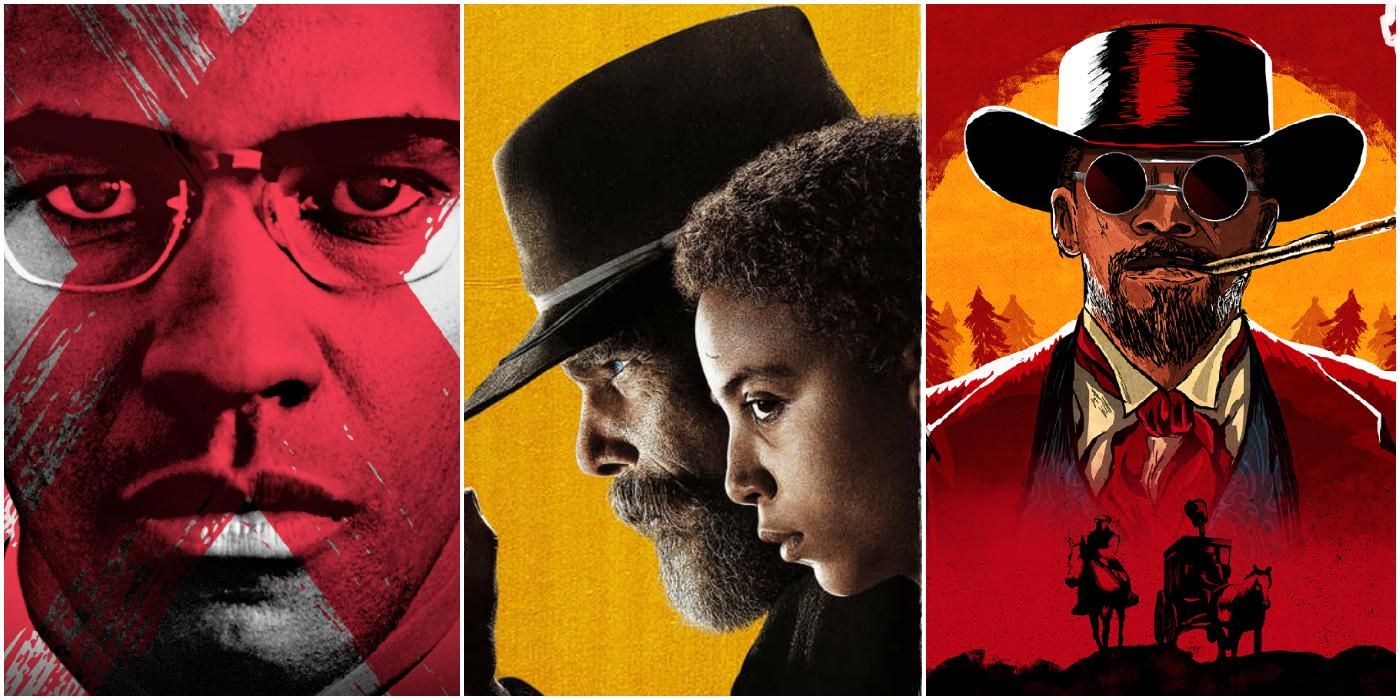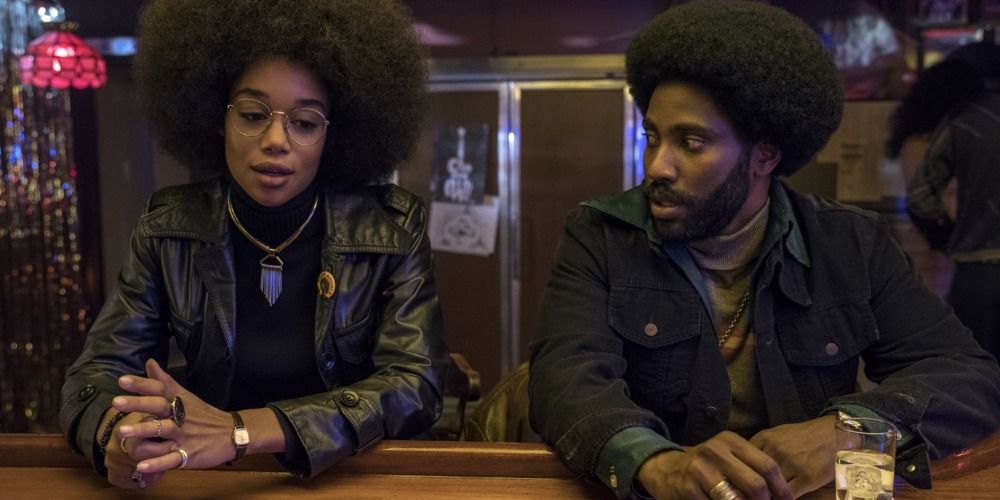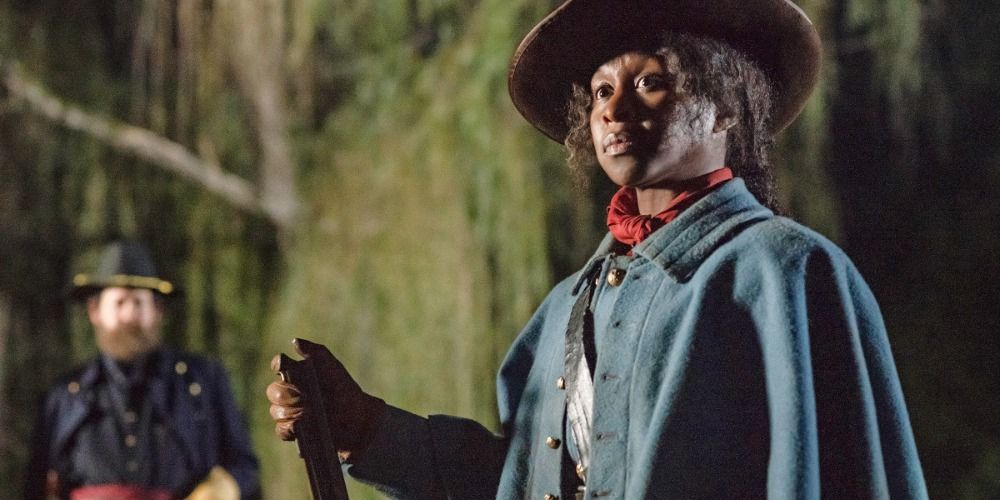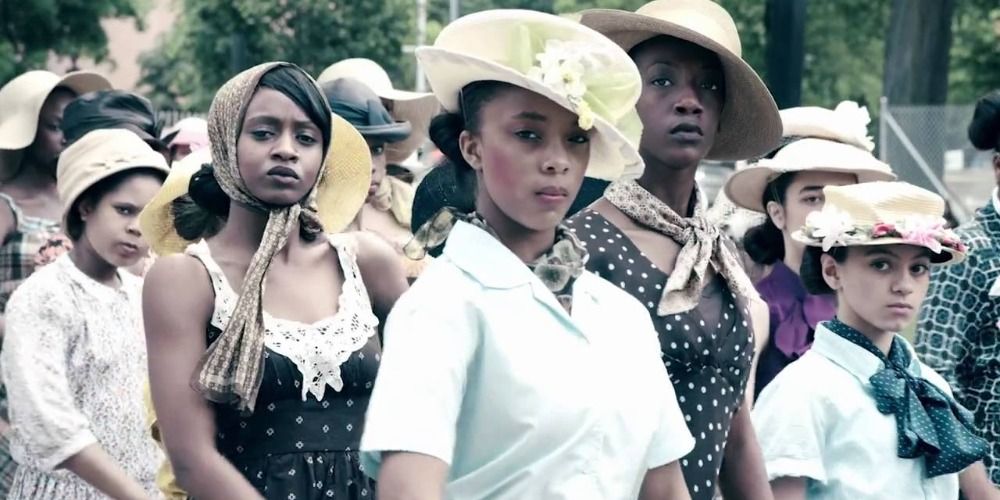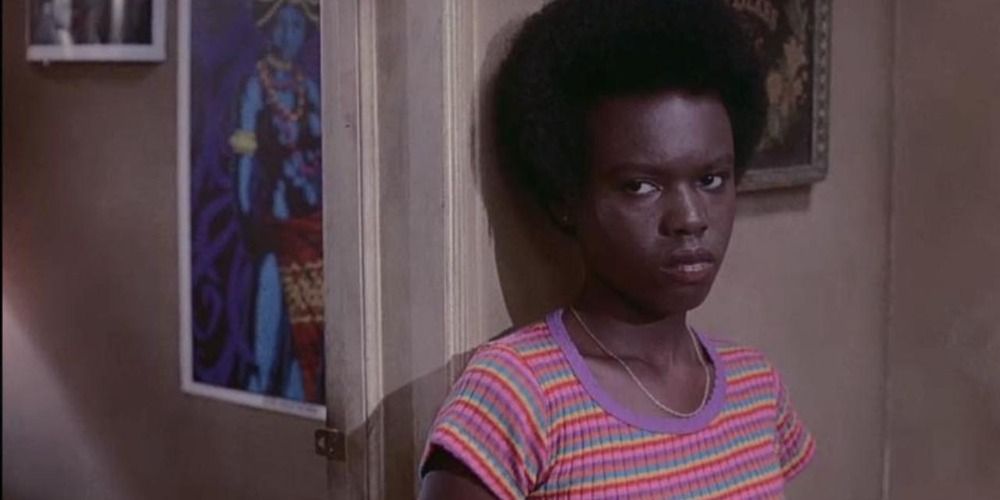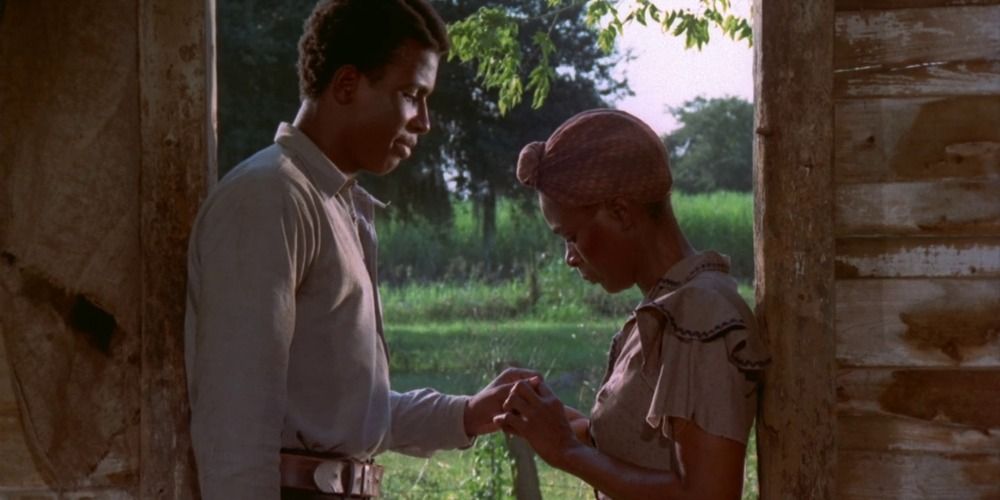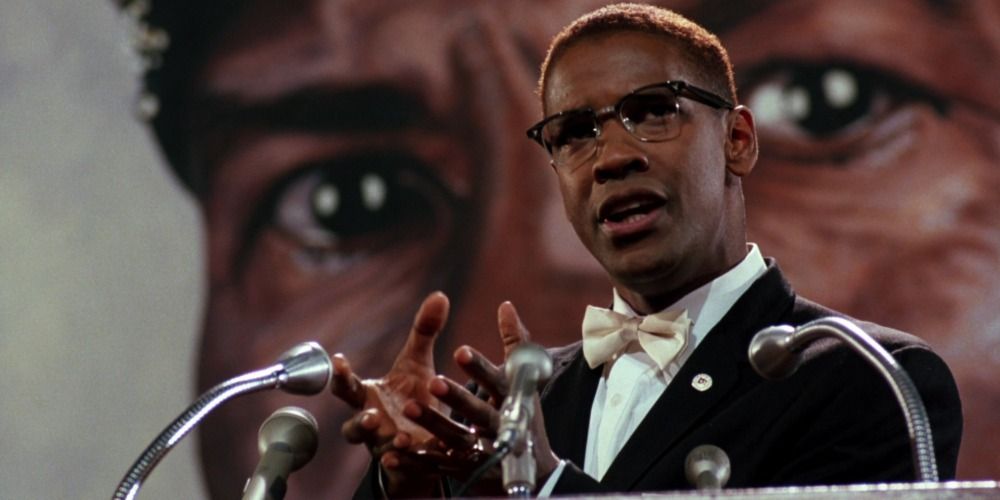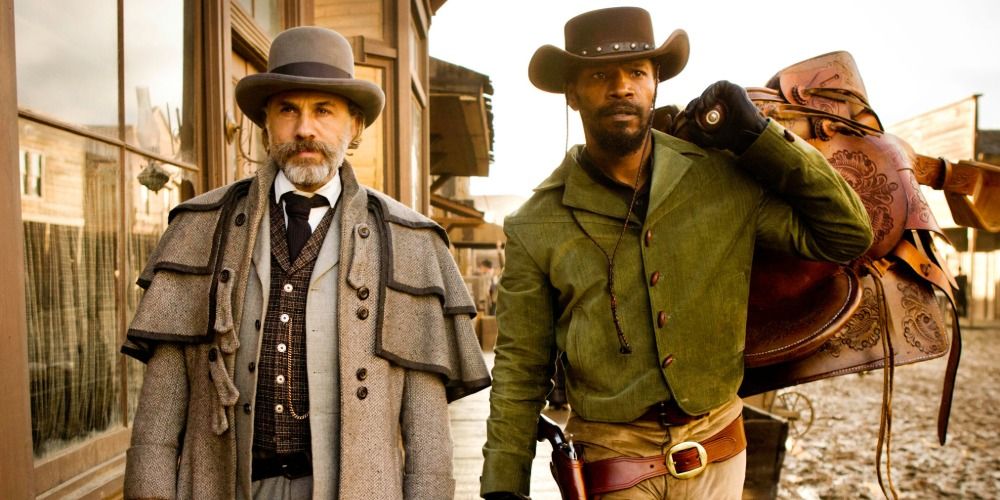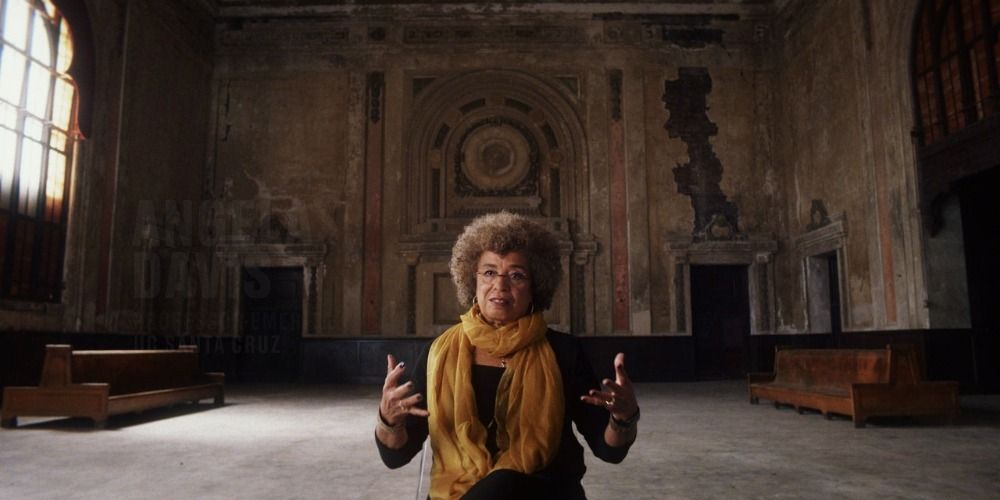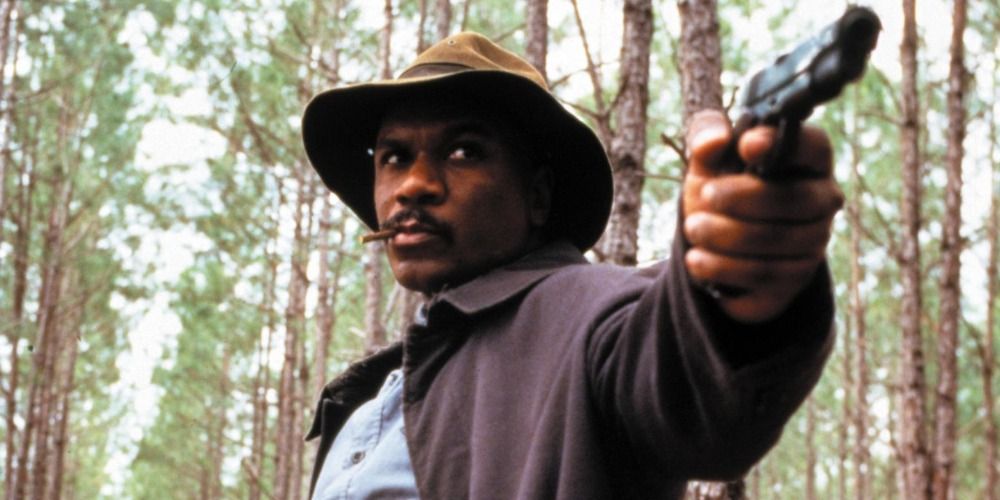Darkly comedic and at times brutally violent, Showtime's new miniseries The Good Lord Bird is based on James McBride's 2013 award-winning novel of the same name. Both book and series are narrated by a young Black man named Henry "Onion" Shackleford in pre-Civil War Kansas, a slave who joins forces with infamous abolitionist John Brown. Ethan Hawke is a perfect fit for Brown, and newcomer Joshua Caleb Johnson shines as Shackleford.
The Good Lord Bird dramatizes a harrowing moment in American history, especially as it relates to Black Americans fighting for an end to slavery. While slavery was abolished as a result of the Civil War, the fight for racial equality rages on to this day. The feature-length movies and documentaries below employ real-life incidents and intense character studies to explore these important issues.
BlacKkKlansman (2018)
Spike Lee's period crime biopic develops an insane but true narrative: two police officers, one Black and one Jewish, develop an undercover operation to infiltrate the KKK in 1970s Colorado Springs. John David Washington stars as Ron Stallworth, the former cops whose 2014 memoir is the source material for BlacKkKlansman. Adam Driver co-stars as Stallworth's colleague Flip Zimmerman
Together, the pair works to thwart a white supremacist plot to plant a bomb at a local civil rights rally. Lee expertly connects the film's events to what's happening in America today.
Harriet (2019)
Another biopic, Cynthia Erivo shines as abolitionist and former slave Harriet Tubman in Harriet. Director Kasi Lemmons zeroes on Tubman's heroic, fearless efforts to lead hundreds of enslaved people to freedom.
Erivo earned a much-deserved Oscar nomination for her performance. While Harriet relies on formulaic twists and turns used in the genre, its lead actor's refreshing portrayal keeps its narrative exciting and urgent.
4 Little Girls (1997)
Another Spike Lee joint, 4 Little Girls is a heartbreaking and important documentary about the four Black girls who were murdered when a bomb went off at their Birmingham, Alabama church in 1963. Addie May Collins, Carol Denise McNair, Cynthia Wesley, and Carole Rosamond Robertson were killed by a local chapter of the KKK, and Lee reexamines this act of racialized domestic terrorism within the larger context of the civil rights movement.
More than anything, Lee strives to give each girl justice by telling her story onscreen. 4 Little Girls even includes an interview with former Alabama governor George Wallace, known for his racist and segregationist views.
Black Girl (1972)
The prolific and influential Black filmmaker and activist Ossie Davis never broke into the mainstream, but his long list of films documenting the Black experience is more prescient than ever. One of his standout features, Black Girl, is an emotional examination of Black womanhood in the 1970s.
Peggy Pettitt stars as Billie, an aspiring young dancer who has a contentious relationship with her mother and sisters. Black Girl challenges the problematic depictions of Black women that were prominent at the time.
The Autobiography Of Miss Jane Pittman (1974)
This forgotten but important made-for-TV adaptation of Ernest J. Gaines' novel of the same name stars Cicely Tyson as the titular character. Set in the 1960s, The Autobiography of Jane Pittman follows the 110-year-old Mrs. Pittman as she tells her life story to a journalist.
A former slave, Mrs. Pittman is honest about her memories and experiences before the Civil War ended the practice of slavery. The movie culminates with Mrs. Pittman participating in a demonstration to end segregated practices at a local water fountain.
Malcolm X (1992)
Another Spike Lee film, Malcolm X is a long, complicated love letter to the often derailed and misunderstood activist who took a different route than other civil rights leaders like Martin Luther King, Jr. Denzel Washington plays X, and the actor immerses himself in his character's pain, growth, and eventual status as a prominent figure in Black liberation.
The movie follows Malcolm from a stint in prison to a major role in the development of the Nation of Islam. Lee based his film loosely on The Autobiography of Malcolm X, published just after Malcolm's assassination.
Beloved (1998)
Jonathan Demme directed this acclaimed adaptation of American author Toni Morrison's Beloved, a prime example of magical realism. Oprah Winfrey stars as Sethe, a former slave living in post-Civil War Ohio who is visited by a young girl she believes to be the spirit of her deceased daughter, Beloved.
Considered a powerful cinematic take on Morrison's book, Beloved doesn't hold back from exploring how America's history of slavery still resonates today. Danny Glover and Thandie Newton co-star.
Django Unchained (2012)
Quentin Tarantino's Django Unchained harkens back to Italian spaghetti westerns, but the director gives his Civil War thriller a bloody, vengeful twist. Jamie Foxx plays the titular character, a freed slave who goes after the Mississippi plantation owner who has captured his wife.
Christoph Waltz adds a problematic white savior subplot to the film as a German bounty hunter who aids Django, but Django's agency remains the centerpiece of the movie thanks to Foxx's performance. While Foxx stands behind the movie, everyone from Spike Lee to Jesse Williams has criticized the film's depictions of slavery.
13th (2016)
13th is a documentary that highlights the intersection between racism and mass incarceration in America. Director Ava DuVernay explores how the US Constitution's 13th amendment, which abolished slavery and involuntary servitude except as a punishment for conviction of a crime, supports the institutional and widespread disenfranchisement of Black citizens.
Through extensive interviews with experts, DuVernay makes a strong case that systemic racism is to blame for the disproportionate number of Black people who move through the criminal justice system. From Jim Crow segregation to the more modern war on drugs, these upheld policies have made real equality impossible for people of color.
Rosewood (1997)
John Singleton's historical drama is a fictionalized retelling of an often overlooked instance of modern racialized violence: the 1923 massacre in Rosewood, Florida. Fueled by the lies of a white woman, a vigilante and white supremacist mob burned Rosewood to the ground, killing at least six Black people in the process.
Rosewood is an ensemble film that stars Ving Rhames, Don Cheadle, and Jon Voight. Hailed by critics for its refusal to let the destroyed city become a distant memory in the annals of history, Rosewood is not easy to watch, but it is essential viewing for anyone who wants to understand the multigenerational wounds left by racist assaults.

